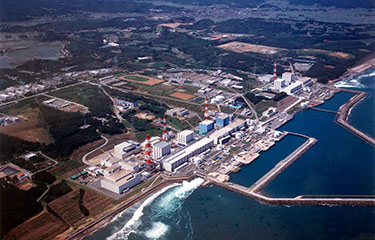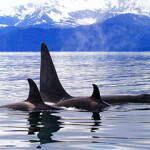China says it will ramp up seafood import checks if Fukushima water is released

China will increase its inspections of imported seafood if Japan moves forward with its plan to discharge radioactive water from the Fukushima Daiichi Nuclear Power Plant into the Pacific Ocean.
The Tokyo Electric Power Company (TEPCO) is planning to release water this summer that is currently trapped within the troubled nuclear plant, which was damaged by the earthquake and tsunami that hit Japan in March 2011. Japan’s Nuclear Regulation Authority (NRA) approved the plan in May 2023.
An International Atomic Energy Agency (IAEA) report issued 4 July said the planned discharge of the treated water would have a negligible radiological impact to people and the environment.
“Based on its comprehensive assessment, the IAEA has concluded that the approach and activities to the discharge of ALPS treated water taken by Japan are consistent with relevant international safety standards,” IAEA Director General Rafael Mariano Grossi said in a foreword of the report. “The IAEA notes the controlled, gradual discharges of the treated water to the sea, as currently planned and assessed by TEPCO, would have a negligible radiological impact on people and the environment.”
But Chinese Foreign Ministry Spokesman Wang Wenbin said on Wednesday, 5 July China that opposes the move.
“By discharging nuclear-contaminated water into the Pacific Ocean, the Japanese side may violate obligations stipulated in international law, including the United Nations Convention on the Law of the Sea (UNCLOS), and the Convention on the Prevention of Marine Pollution by Dumping of Wastes and Other Matter in 1972. Since Japan claims that it abides by international law and rules, it owes the international community an explanation,” he said. “The report cannot ensure the safety of Japan’s plan of discharging nuclear-contaminated water into the ocean. The effectiveness and long-term reliability of Japan’s purification facility is not verified by a third party, the authenticity and accuracy of the nuclear-contaminated water data lacks proof and the long-term influence of radionuclides in the nuclear-contaminated water on food safety and people’s health through biological concentration has not been studied.”
Wenbin said the Chinese government would take action if the water release goes ahead as plan.
“Competent departments of the Chinese government will enhance marine environment monitoring and strengthen inspection and quarantine of imported seafood and other products to safeguard people’s health and food safety,” Wenbin said.
When pressed for more details on the measures China plans to take, Wenbin declined to give specifics.
Before the release, TEPCO is treating the radioactive water at a processing facility to remove most of the contaminants, except tritium. But its storage tanks are nearing capacity, and TEPCO fears the continuing collection of contaminated water might hamper the reactor decommissioning process. The IAEA said releasing tritium produced from reactor operations into the sea is a common and safe process within limits.
Despite its assurances, several countries besides China have expressed their concern over the release, including South Korea, the Philippines, Indonesia, South Africa, Peru, and several Pacific Island nations, with many pledging to expand bans on seafood from the region or upping its food safety inspections.
Photo courtesy of Wikimedia Commons






Share